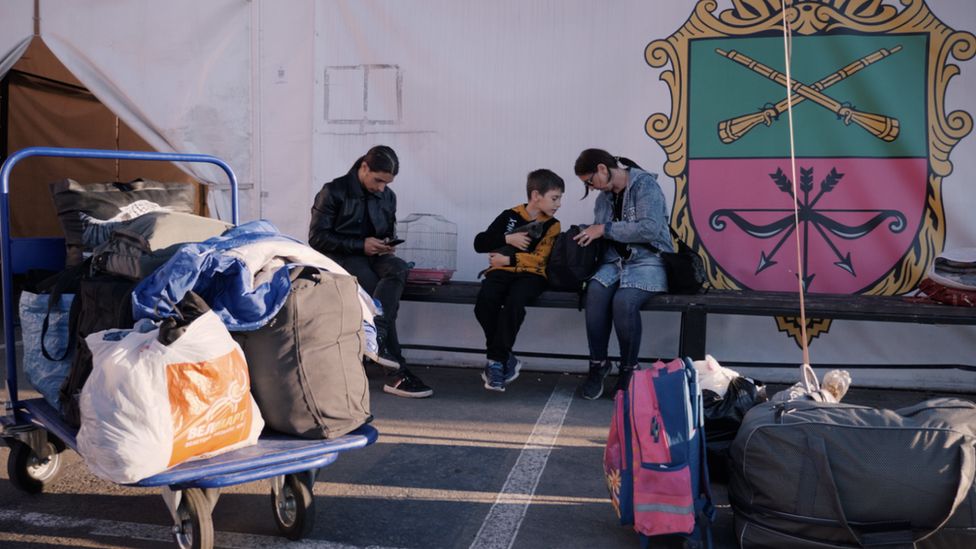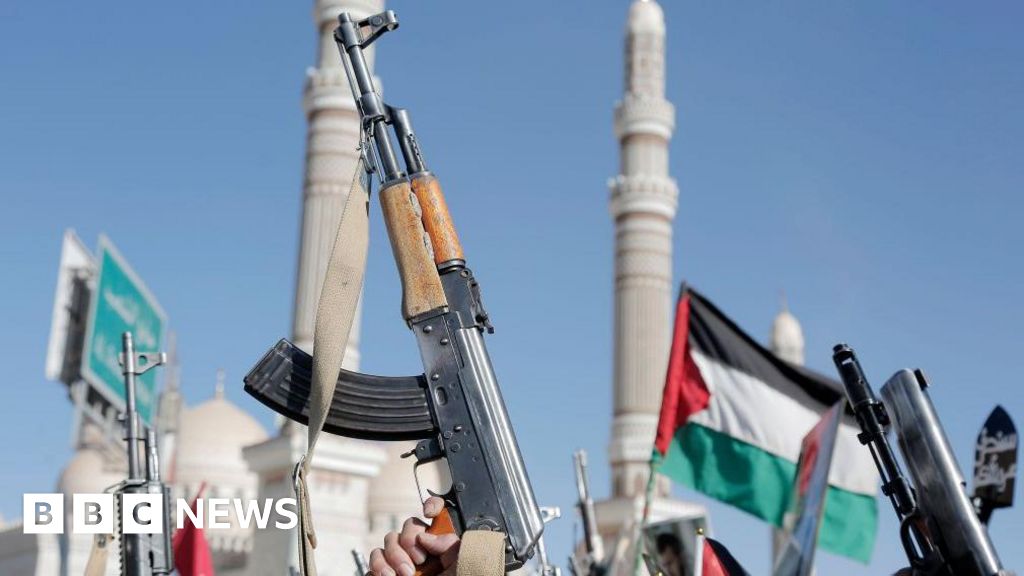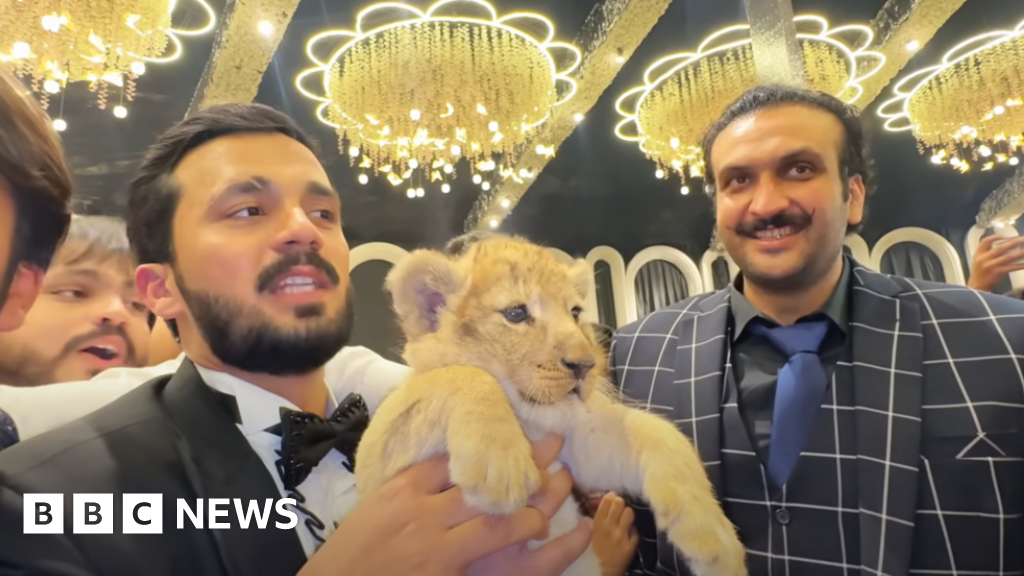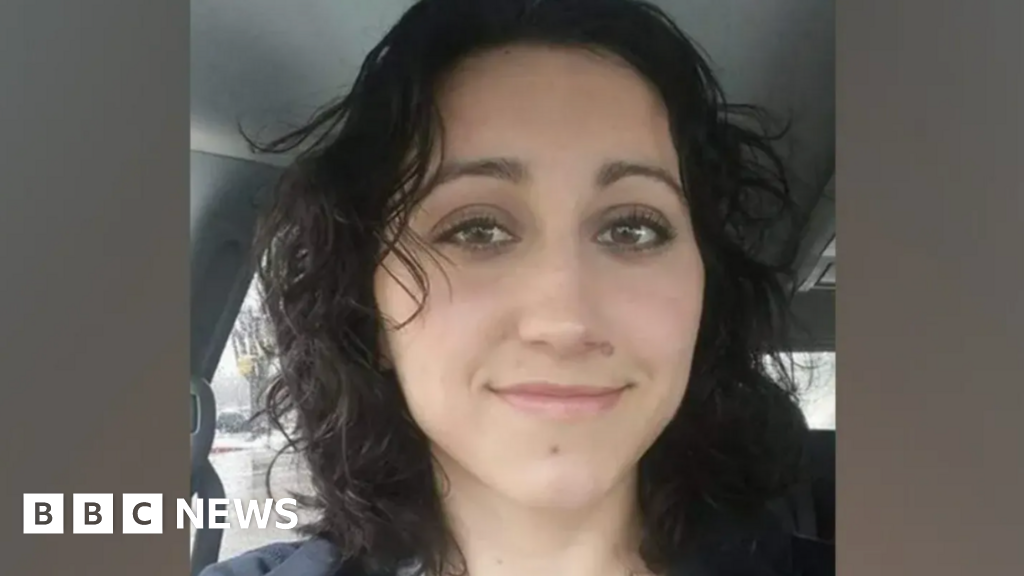ARTICLE AD BOX
 Image source, Matt Goddard/BBC
Image source, Matt Goddard/BBC
Zaporizhzhia's makeshift reception centre sees few arrivals these days
By Paul Adams
BBC News, Zaporizhzhia, Ukraine
Moscow's move to annex parts of Ukraine has sent a new Iron Curtain down across a vast swathe of territory - cutting off an unknown number of people from their own country.
Until 1 October, Ukrainians were able, with difficulty, to move to and fro across the front lines.
From a crossing point at Vasylivka, on the eastern bank of the Dnipro river, some would travel to nearby non-occupied Zaporizhzhia to visit relatives, buy food or medicines.
But many left for good, carrying what they could with them, in search of new lives in areas not under Russian occupation. Some travelled on to Europe.
On average, about 1,000 people used to arrive every day at a makeshift reception centre in the carpark of a DIY superstore on the edge of Zaporizhzhia.
On 30 September, with Russia's self-styled "referendums" over and annexation being announced in Moscow, local police said that figure rose to 1,616.
But then the flow almost stopped.
The following day, 50 people arrived. On Sunday 2 October, it was down to just eight.
Reports from Vasylivka, meanwhile, spoke of huge lines of people in cars desperate to leave.
Image source, Matt Goddard/BBC
Image caption,People are desperate to leave Russian-occupied areas, Mayor Ivan Fedorov says
"The queue to leave the occupied territories is 4,500 people," the mayor of Melitopol, Ivan Fedorov, told us from his temporary office in Zaporizhzhia. "An elderly man died in the queue yesterday."
Civilians from Melitopol were trying any route they could, Fedorov said, including through Crimea, but there were long lines that way too.
"Those who left the east before 1 October managed to cross the passage to Zaporizhzhia within two days," said a source in Kherson who asked to remain anonymous.
"But a friend of mine who left on Thursday is still there. They have to sleep in their cars for the fourth day in a row."
On Monday, the reception centre in Zaporizhzhia was almost deserted. The car park where barriers are arranged to deal with convoys of vehicles was empty.
Image source, Matt Goddard/BBC
There was almost no-one in the large white tent where blankets and clothes were piled up, ready to be handed out to new arrivals.
We met 19-year old Maksym Bezhan, travelling with his mother, young brother and family cat - three of just 43 people to arrive that day.
They were all exhausted after a four-day trip from their home in a village near the port city of Berdyansk.
"It was frightening to get out," he told us. "We were afraid we'd encounter a Russian soldier in a bad mood; that we'd be turned around and sent back home."
There were other worries too. Would the soldiers check his phone? His computer?
"After the invasion," he said, "I became very pro-Ukrainian."
Image source, Matt Goddard/BBC
Image caption,Maksym Bezhan (left) and his family made it after a gruelling four-day trip
The family spent nights sleeping in the car. "It was raining on Sunday," Maksym said. "It was very uncomfortable to sit in the car. All our bones ached. But it was too cold to go outside."
The family had very little money. Maksym's mother bought food for his younger brother but refused to eat any herself.
"People are very tired there," he said of the queues around Vasylivka. "They're barely surviving. They're running out of patience and money. There's an atmosphere of tiredness and despair."
One of the main holdups since annexation is a new Russian exit form. All those who want to leave are obliged to complete it online and wait for a reply.
It asks for a lot of information. Not just the names and passport details of applicants, but their mobile phone and IMEI (phone identification) numbers, contact information for their hosts, purpose of their trip and details of all relatives living in Ukraine.
"Have you ever done military/state service in Ukraine from May 2014 to April 2022?" it asks. "If not, specify the reason."
"Have you been a member of any [political] parties of NGOs on the territory of Ukraine?"
It's basically a visa application, underlining Russia's insistence that this is now an international frontier.
Image source, Matt Goddard/BBC
Image caption,Families who got through are hoping for a new life beyond the reach of the Kremlin
The head of Zaporizhzhia's Ukrainian regional military administration, Oleksandr Starukh, said Russia was trying to build a "state border" at Vasylivka. Until Friday, no such form existed.
Its appearance is causing fear and confusion. Telegram chat groups set up to help people leave are full of anxious questions.
"I'm going with my daughter through Vasylivka," writes Sofia. "My husband is in Poland. Will they let me through with her, without his permission?"
"Please help me," Andrii writes. "A 20-year old guy wants to go to hospital. People say it's better not to say that. Who wrote what when applying for a pass."
"We've been sitting near Dneprorudny [west of Vasylivka] for 4 days," complains Viraliy. "We've not received a response yet."
And there are other, more domestic concerns too. "Maybe someone saw a grey young cat with green eyes running around?" Olena asks. "He escaped from the car."
Another woman, posting anonymously to a Telegram channel, spoke of families, some of them with babies, living in their cars, short of food and running out of money.
"In addition to this," she wrote, "not far from where cars are parked, hostilities are taking place. Rockets sometimes fly over people."
For now, movement across the front line is impossible in either direction.
Following last Friday's rocket attack on the outskirts of Zaporizhzhia, which killed at least 30 civilians, the authorities in Zaporizhzhia banned all movement into Russian-controlled territory for an indefinite period, citing security concerns.

 2 years ago
21
2 years ago
21








 English (US) ·
English (US) ·